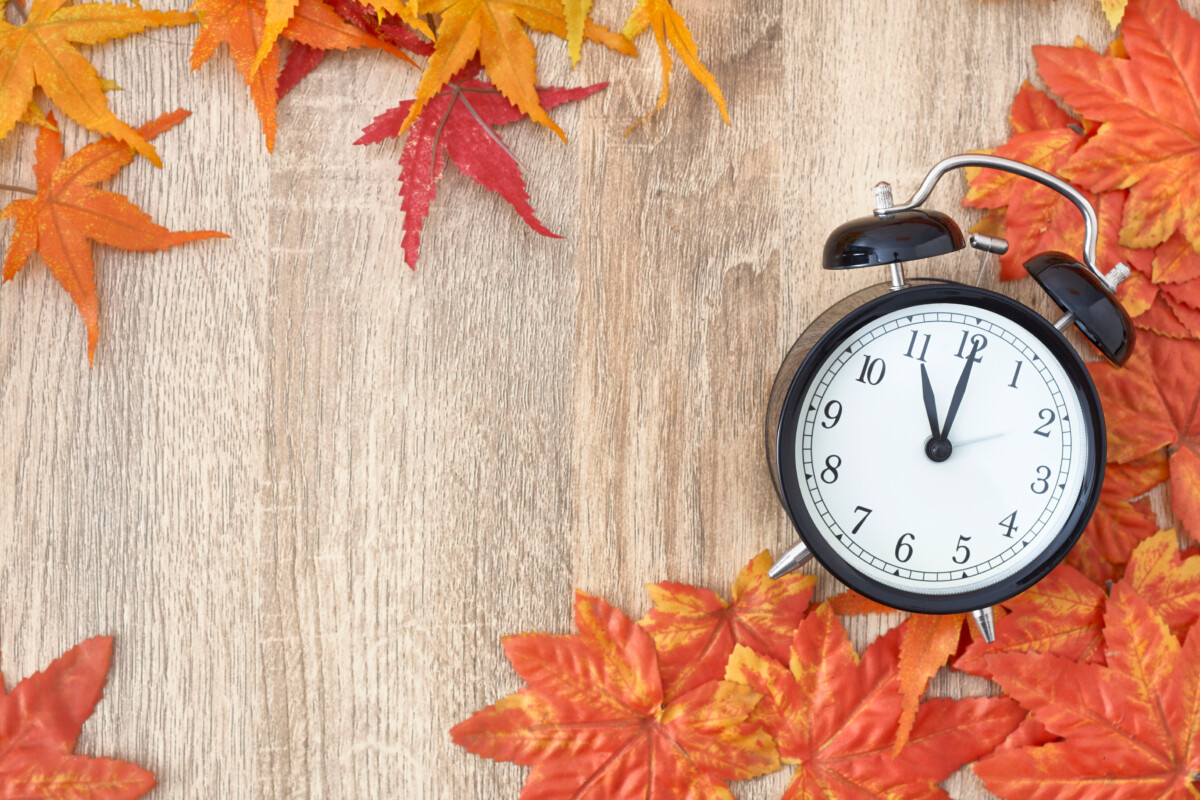Adjusting to the Fall Time Change

Love it or hate it, Daylight Savings Time (DST) has been a fact of life for Hoosiers since 2006 (some counties began observing it as early as 1918). Daylight Savings Time begins in the spring, when the clock shifts forward one hour, leaving an extra hour of daylight in the evening. It ends in the fall, when clocks shift back one hour, putting an extra hour of daylight in the morning.
Many people prefer the end of DST, since the fall time change allows them an extra hour of sleep. Even in the fall, however, our sleep cycles have to be reset. Any time this happens, we ultimately wind of losing more sleep than we gain. For instance, many of us turn into instant “early birds” the week after the fall time change. When this happens, we wind up losing morning sleep. This can cause our fatigue to “stack up” over the course of the week.
Some people can adjust to an hour time change more easily than others. If you usually have a hard time with the fall time change, it helps to begin adjusting before the clock moves forward. To do this, begin staying up 15 minutes later each night in the days before the time change. That way you will have time to make the transition, rather than being hit by it all at once on Sunday night and Monday morning.
Leaving Daylight Savings Time means more hours of darkness and fewer hours of sunlight in the evenings. Having fewer hours of daylight after work can cause several issues:
- By the time you get off work, you may find yourself arriving home after dark. This can be a safety and security issue. Automated lighting set to a timer can help. There are also lights designed to turn on when your phone is nearby.
- If you’re used to exercising outdoors in the evenings, you may need to adjust to working out in the dark. Bike lights, reflective clothing and headlamps can help. If this doesn’t work, it may be time to join a gym or invest in a treadmill.
- If the lack of sunlight leaves you feeling depressed, upgrade to some full spectrum lighting in the rooms where you spend the most amount of time. Buy some medium-light plants. If the lighting keeps them healthy, then it will likely be enough for you as well. If your depression persists, make an appointment with your healthcare provider. Light Therapy for the Winter Blues | Rush Memorial Hospital
Whatever adjustments you make before the fall time change, remember that the week after isn’t going to be entirely normal. Expect those at work and home to be a bit more tired and grumpy than usual. Don’t be surprised if you feel the same way. Just be thankful this only happens twice a year.
